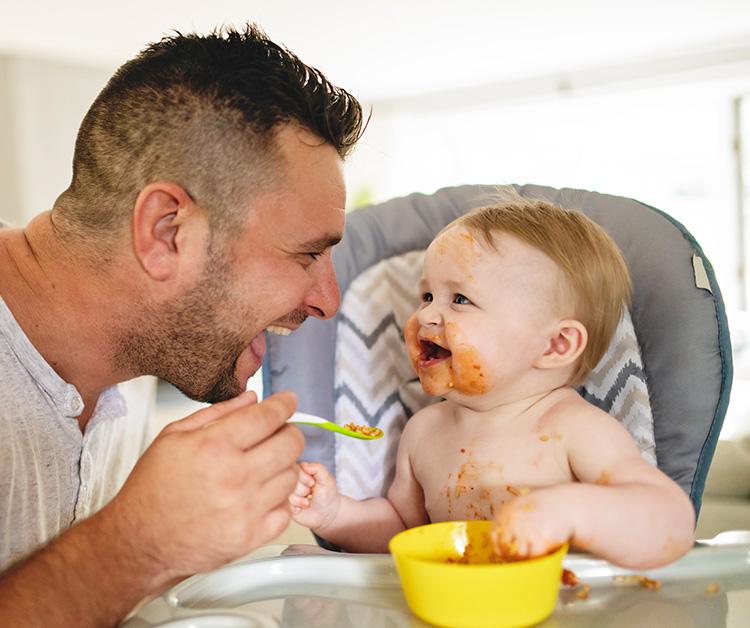
Chances are your toddler has a mind of his own, which can make the baby feeding schedule a bit challenging at times. But you should know that the average 1-2 year old needs about 1000 calories per day, which can be reached in three small meals and two snacks.
Most toddlers prefer to feed themselves. Let him, as long as you have plenty of unbreakable plates, cups, spoons and forks available.
Ask your doctor about toddler formulas, or vitamin supplements. Especially if a lot of his food ends up on the floor. It's one way to make sure your baby gets the complete toddler nutrition his diet may lack.
Serve meals and snacks around the same time every day.
A little pre-meal quiet may help him focus.
Give him less than you think he'll eat, and let him ask for more. Try one tablespoon for every year of his age.
Like cut-up soft veggies.
If he doesn't like something, don't push it. Try it again another day, in smaller portions, with foods he likes. Then try again. And again.
When he's full, he's full. Respect that.
Some common no-nos are whole baby carrots, raw celery, hot dogs, nuts, round hard candies, raw cherries with pits, or spoonfuls of peanut butter.
All information on Enfamil, including but not limited to information about health, medical conditions, and nutrition, is intended for your general knowledge and is not a substitute for a healthcare professional's medical identification, advice, or management for specific medical conditions. You should seek medical care and consult your doctor or pediatrician for any specific health or nutrition issues. Never disregard professional medical advice or delay seeking medical treatment, care, or help because of information you have read on Enfamil.